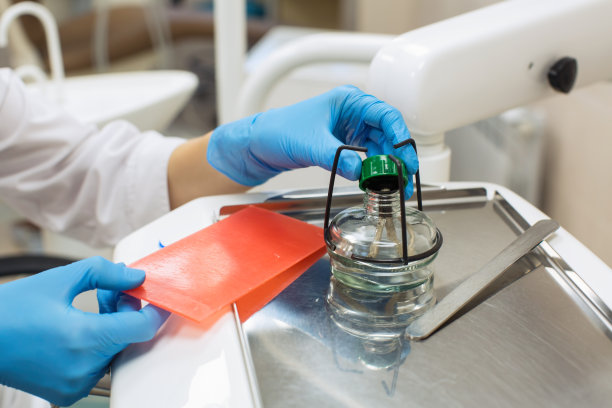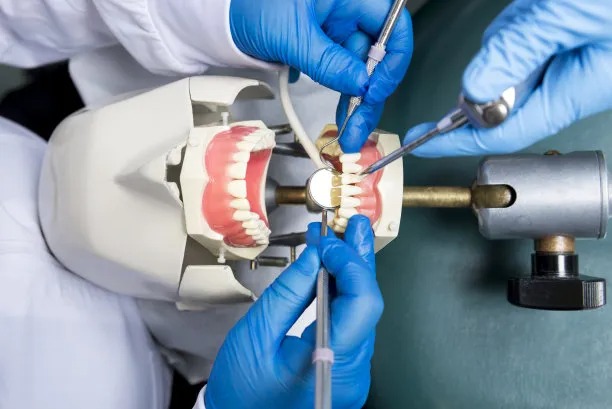Summary: Dental fillings are a common and effective way to restore damaged teeth, but they require certain precautions to ensure optimal outcomes. This article discusses essential steps to take both before and after receiving a dental filling for optimal oral health and comfort. We will cover the importance of preparing mentally and physically for the procedure, following post-treatment care instructions, recognizing potential complications, and maintaining good oral hygiene practices. Each aspect plays a crucial role in not only minimizing discomfort during recovery but also enhancing the longevity of the filling and the overall health of your teeth.
1. Preparing Mentally and Physically for the Procedure

Before undergoing a dental filling, mental preparedness is as crucial as physical readiness. Understanding the procedure can significantly ease anxiety. Patients are encouraged to research dental fillings, which can help mitigate fears related to the unknown aspects of the treatment.
Additionally, it鈥檚 important to communicate any anxieties or concerns with your dentist. They can provide reassurance and may adjust their approach to ensure that you remain comfortable throughout the appointment. Establishing a trusting relationship with your dental professional is vital for a stress-free experience.
Physically preparing for a dental filling involves dietary considerations as well. It is typically advised to avoid heavy meals right before the appointment. A light snack may suffice as it ensures that you are neither hungry nor overly full, creating more comfort during the procedure.
2. Following Post-Treatment Care Instructions
After receiving a dental filling, adhering to the post-treatment care instructions provided by your dentist is essential for optimal healing. Typically, patients are advised to avoid eating or drinking hot or cold substances for a few hours to allow the filling to set properly. This precaution helps prevent discomfort and ensures that the filling bonds to the tooth effectively.
It is also critical to refrain from using the filled tooth for chewing hard or sticky foods for at least 24 hours. This caution helps in protecting the new filling from damage while it adapts to its new environment. Gradually reintroducing normal foods can help gauge how the filling holds up under different types of pressure.
Should any discomfort or unusual symptoms occur after the filling, contact your dentist immediately. Some people may experience sensitivity in the filled tooth; however, if it persists beyond a week, further evaluation may be necessary to rule out any complications.
3. Recognizing Potential Complications
Being aware of potential complications following a dental filling can significantly impact recovery. One common issue is sensitivity, which can be heightened due to the material used in the filling or because of the changes in the tooth structure. Acknowledging that some sensitivity might be normal can help in assessing whether it requires further attention.
Occasionally, dental fillings can become loose or fall out, especially if they are under excessive strain. Recognizing the signs of a loose filling, which may include sharp pain or the sensation of movement, can prompt timely dental visits to prevent further damage to the tooth.
In rare instances, an allergic reaction to the materials used in the filling can occur. If you experience persistent discomfort, swelling, or an unusual taste, consulting your dentist is vital. Early diagnosis and treatment can help alleviate any complications that develop following the procedure.
4. Maintaining Good Oral Hygiene Practices
Maintaining optimal oral hygiene is crucial for the longevity of dental fillings. Brushing your teeth at least twice a day and flossing daily will help keep your mouth healthy and minimize the risk of decay forming around the edges of the filling. It鈥檚 essential to use a soft-bristle toothbrush and fluoride toothpaste, as these will not harm the filling while promoting dental health.
Regular dental check-ups play a significant role in maintaining overall oral health. Your dentist will monitor the condition of your fillings and provide professional cleanings to remove any plaque buildup. It鈥檚 advisable to schedule dental visits every six months or as your dentist recommends.
In addition, a balanced diet is integral in maintaining dental health. Limiting sugar intake and consuming nutritious foods can help prevent future cavities, ensuring that both your natural teeth and fillings remain healthy and functional for as long as possible.
Summary:
In conclusion, taking essential precautions before and after dental fillings can significantly enhance your oral health and comfort. Understanding the importance of mental readiness, adhering to post-treatment instructions, recognizing potential complications, and maintaining good oral hygiene will contribute to the success of your dental filling.
This article is compiled by Vickong Dental and the content is for reference only.
Vickong Dental
Vickong Dental is a large medical group established in Hong Kong in 2008 by professors from well-known medical universities in Guangdong and Hong Kong, as well as medical doctors from key national '985' universities (including Master's supervisors and senior professors). The chain of branches brings together expert dentists with PhDs and Master's degrees from Hong Kong and Mainland China, committed to providing high-quality dental treatment.
"Vickong Dental Practices the University Motto of 'Healing and Serving Society,' with a Stable Operation for Sixteen Years. It Has Been honored with Hong Kong Enterprise Leaders's Choice,' and is a Global Trusted Implant Center for the Nobel Implant System. Recommended by Hong Kong Metro Broadcast and Guangdong Television, it Serves Customers from Over Thirty Countries and Regions, Gaining the Trust and Favor of Citizens from the Guangdong-Hong Kong-Macau Greater Bay Area and Surrounding Cities.

Thousands of customers' unanimous praise
The most recognized and highly recommended dental service by customers in the Guangdong-Hong Kong-Macau Greater Bay Area
We Ensure You Receive Detailed Care and Attention Here
Hong Kong standards, Shenzhen prices, Your Trusted English-speaking dentists

Vickong Dental Medical-Grade Instrument Disinfection Process
Vickong Dental Medical-Grade Instrument Disinfection Process

Vickong Dental Chain: A Warm and Comfortable Environment for Treatment






Appointment Hours

Q&A
Why choose Vickong Dental?
Vickong Dental practices the university motto 「Medicine to Benefit Society」, with each branch bringing together highly qualified dentists with doctoral and master’s degrees from Hong Kong and the Mainland, and has maintained seventeen years of steady operation。Recipient of 「2024 Hong Kong Enterprise Leaders Brand」, 「2025 Hong Kong Enterprise Leaders Brand」, a Nobel Biocare Global Trusted Implant Center, and a brand recommended by Metro Radio Hong Kong and Guangdong TV。
To date, we have served customers from more than thirty countries and regions,earning exceptionally high word-of-mouth recognition and trusted recommendations from residents across the Guangdong-Hong Kong-Macao Greater Bay Area and surrounding cities
We have eight major branches in Zhuhai、Shenzhen,and a consultation and service assurance center in Hong Kong,so you can book a free consultation at any time for any questions,which is very reassuring.
If I do not accept the quotation after the CT scan, will I be charged??
No! As long as the actual treatment has not started, you will not be charged any fees.
Will there be any additional charges during the treatment process?
No, there won’t be any additional charges. Before treatment begins, we will clearly explain the treatment plan and its corresponding fees. Only after the patient agrees and signs the consent form will we proceed with the dental service.
Can I pay in Hong Kong dollars?
Yes. Vickong Dental accepts payment in Hong Kong dollars. The amount will be converted based on the exchange rate of the day, and the applicable rate will be clearly communicated to you in advance.
Can I reschedule my appointment at any time?
Yes. Please contact us via **WeChat** or **WhatsApp** as early as possible, providing your original appointment time and details, along with your preferred new date and time slot for rescheduling.













